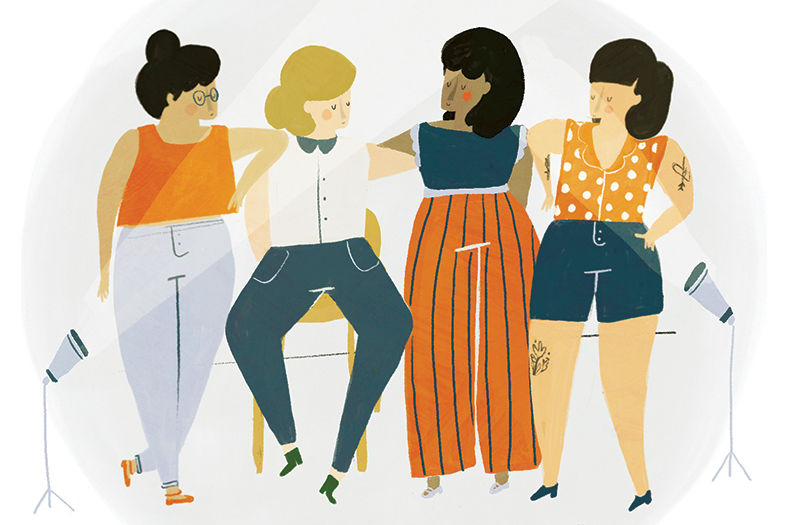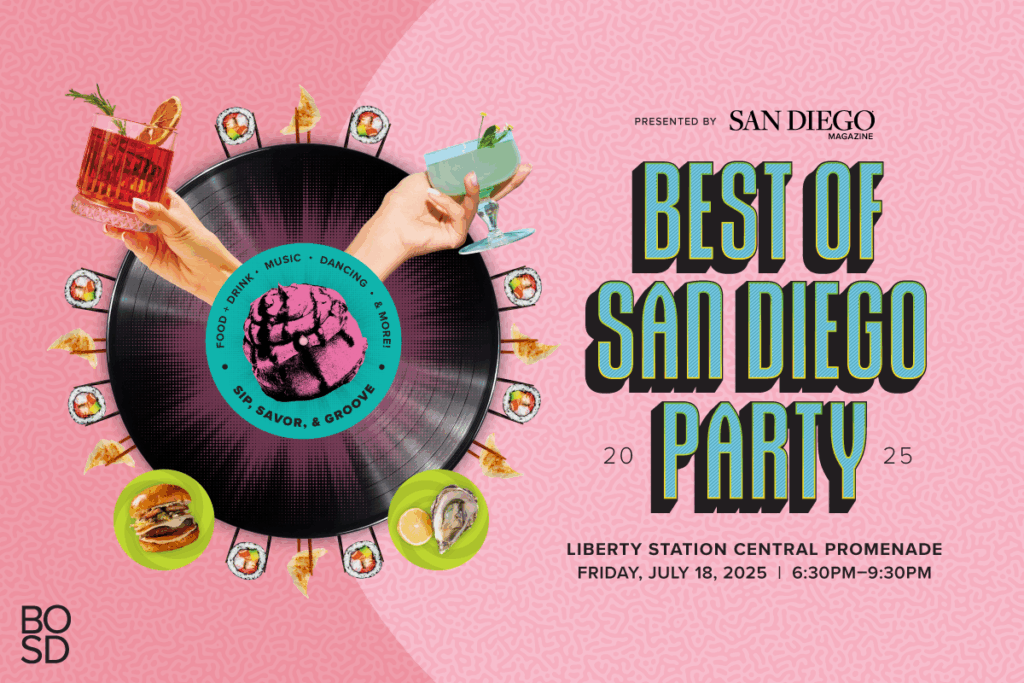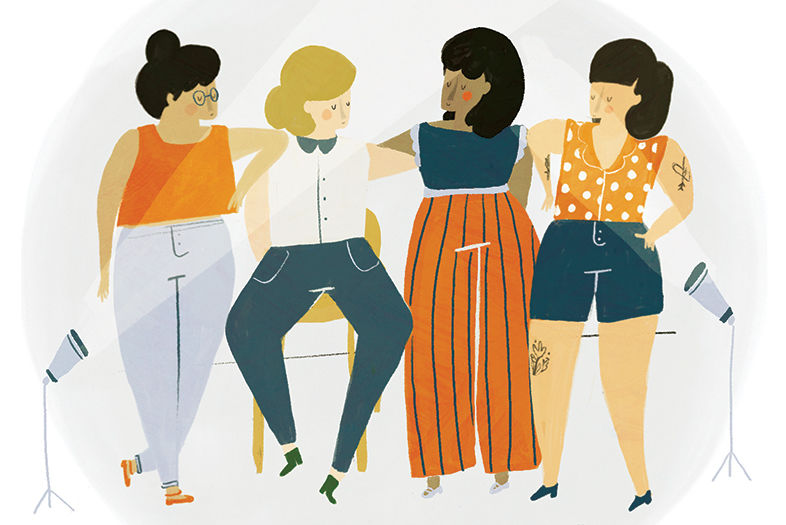Quick, think of your favorite movie. Does it have two female characters with names? Do they talk to each other—about something besides a man? If so, congratulations! That movie passes the Bechdel Test, a simple metric for evaluating women’s representation in media, inspired by a 1985 Dykes to Watch Out For comic strip by Alison Bechdel. It seems like an embarrassingly low bar to clear, but far fewer movies (or TV shows, or plays, etc.) do so than you’d think, revealing just how ancillary most female characters still are to what, by default, is nearly always a man’s story.
Creating more diverse and honest images of women is the driving mission behind San Diego’s Moxie Theatre, and the Bechdel Test naturally enters into their decisions about what work to produce—especially after Fun Home, a three-time Tony Award–winning musical based on Bechdel’s memoir, proved her crossover appeal in the theater world.
Moxie’s directors have an ongoing initiative to develop different portions of their audience every year, and in the midst of planning their 2017–18 season, they began brainstorming ways to reach out to the lesbian demographic. Longtime San Diego theater patrons Dea and Osborn Hurston—she an eight-year City of San Diego arts commissioner, he a former president of the San Diego Performing Arts League—had offered the theater funding for this purpose, but Executive Artistic Director Jennifer Eve Thorn wanted to do more than a one-off show with queer characters.
Thorn reached out to Toni Robin, the arts publicist behind TR|PR, whom she knew had been especially interested in the theater’s mission. Robin conceived of an ongoing program: something bigger and more active that would live on season after season, getting more women engaged with the work.
What they came up with was The Bechdel Brigade, launched in February. Signing up to become a “brigadier” for one, two, or all four shows in a season lands you an invitation to an exclusive performance before opening night, along with the accompanying “First Look: Designer and Cast Presentation,” other special social events—and last but not least, a sassy T-shirt.
Considering the Bechdel Brigade’s namesake, it may seem odd that its inaugural show, Blue Door, had only a two-man cast. But as Robin says, “I don’t need to see lesbian characters specifically; I just want to see strong work by women.” Indeed, in that case, everyone not on stage—writer, director, and the entire crew—were women.
Brigadiers have a lot to look forward to in the 2017–18 season, as well: There’s a tale of Medea, Antigone, Cassandra, and Clytemnestra set in 1960; a search for a missing daughter in wartime Argentina; The Diary of Anne Frank; and September’s “darkly funny” Ironbound, about an immigrant’s fight for survival in New Jersey.
Despite theater’s popular reputation as a historically inclusive space, Robin says that LGBT audiences have been alienated by limited representation. “It used to be that even in shows that had a gay character, they died or committed suicide. It was just tragic. A lot of people stepped away from theater for other outlets, and we’re trying to gather those people back.”
Representation is about more than just the token “strong female character,” a trope that—at least in the laziest examples of the 2000s—usually equates to “a woman whose only defining trait is being as tough as a man.” Representation means that formerly marginalized or stereotyped people get to be as complex, varied, and flawed as anyone else, and the more space their voices are given, the richer the arts will be for it. As Thorn put it, “There is good, fun, incredible work being done by women, and it’s not for lack of good work that we’re not seeing it; it’s for lack of opportunity.”
How many movies pass the Bechdel Test?
Many pass on mere technicalities. One or two lines of dialogue don’t exactly equal adequate representation, and some movies that don’t pass feature well-rounded female characters regardless—but the test is a good place to start.
6/10: Highest grossing movies of 2016
3/10: Highest grossing movies of 2006
5/10: Best Picture winners of the last decade
Franchises:
- Harry Potter 8/9
- DC Comics (since 2013) 3/4
- Superman (before 2013) 3/5
- Marvel (except Spider-Man) 9/15
- Star Wars 4/8
- Back to the Future 1/3
- James Bond (since 1999) 2/7
- Lord of the Rings 1/6
- Batman 1/7
- Spider-Man (any studio) 0/6
- Jason Bourne 1/5
Sources: imdb.com, bechdeltest.com

Moxie Theatre Launches a Lesbian Outreach Initiative
PARTNER CONTENT
Illustration by Libby Burns


















